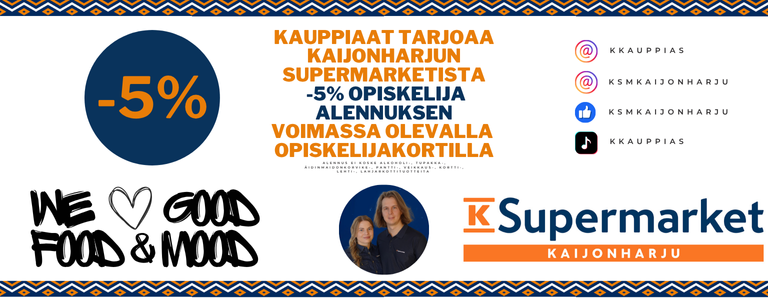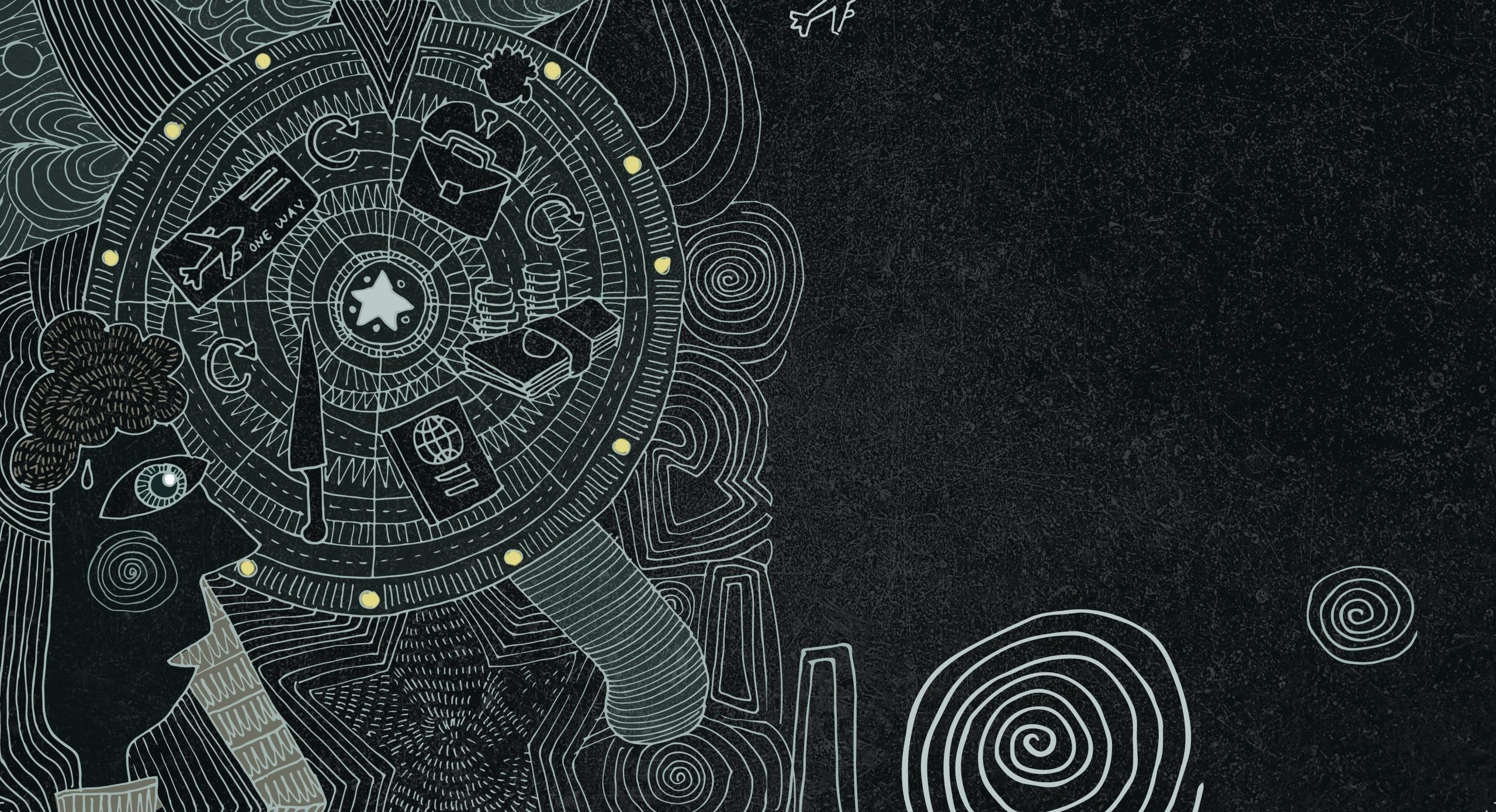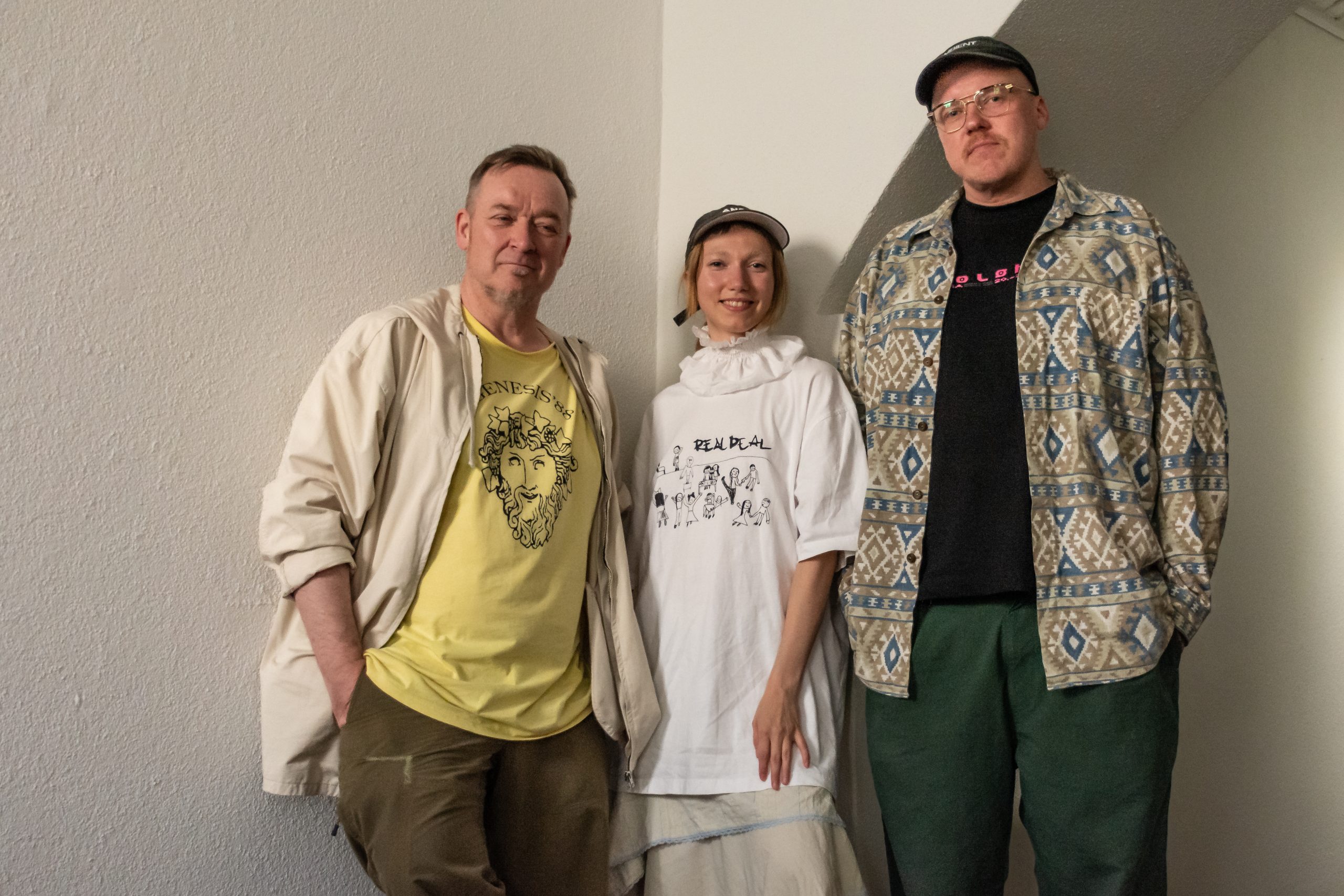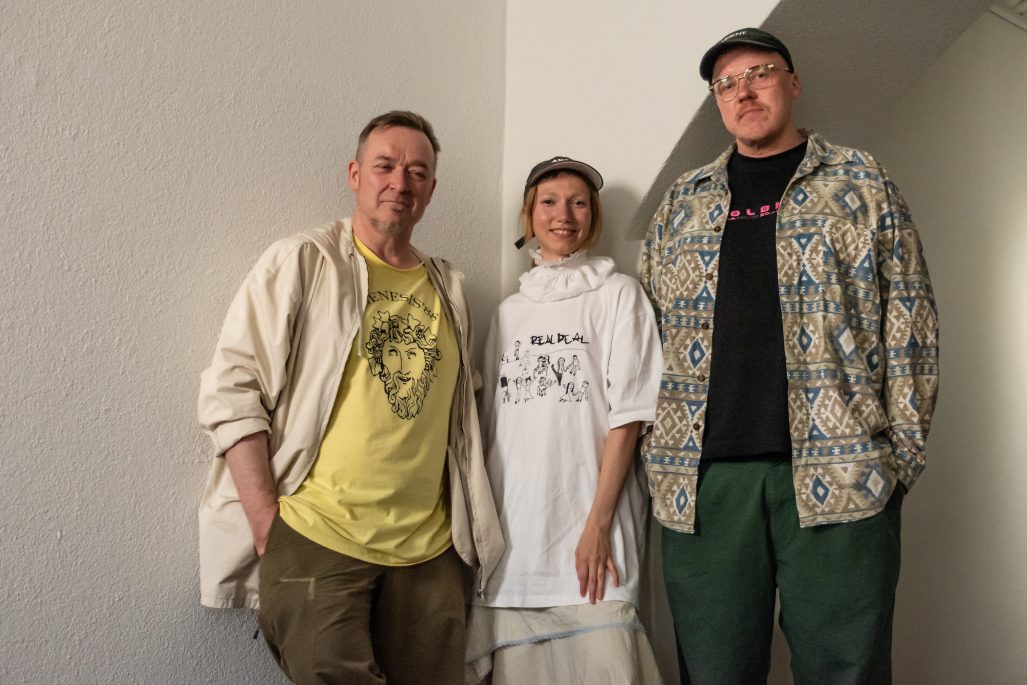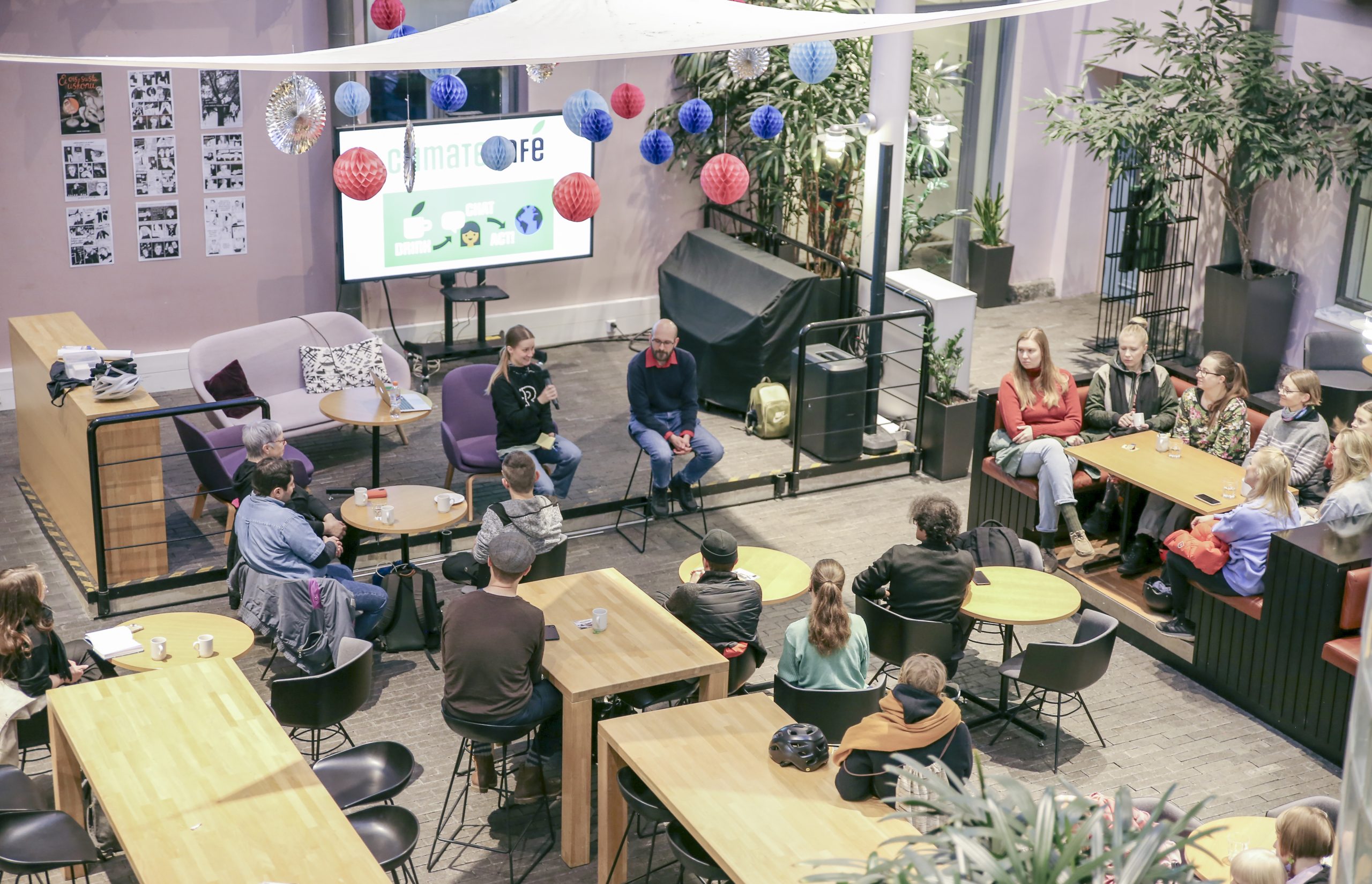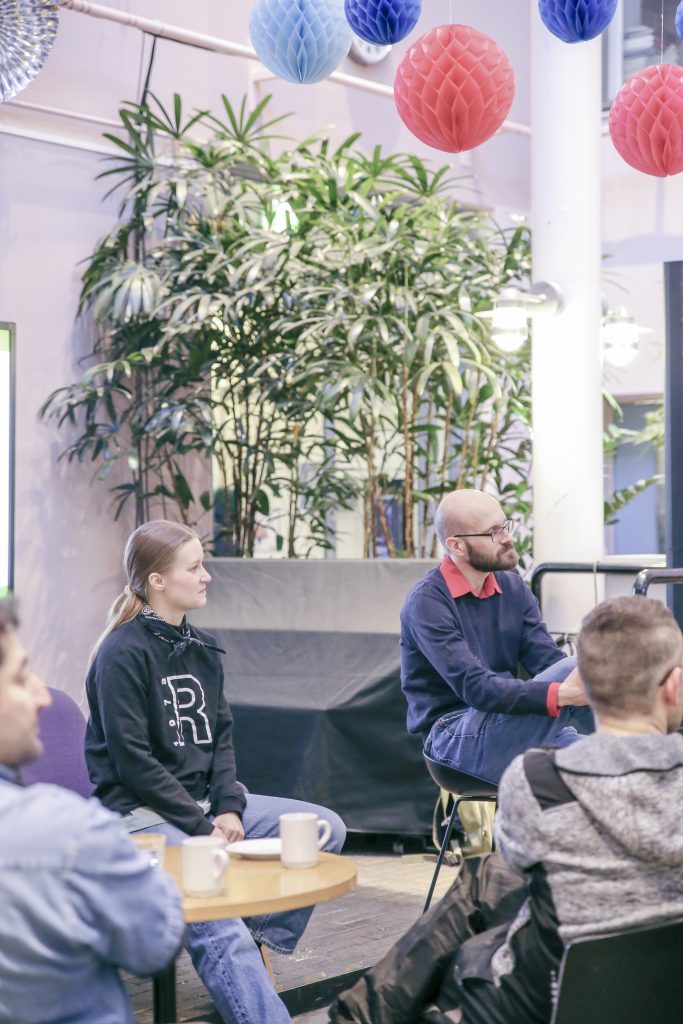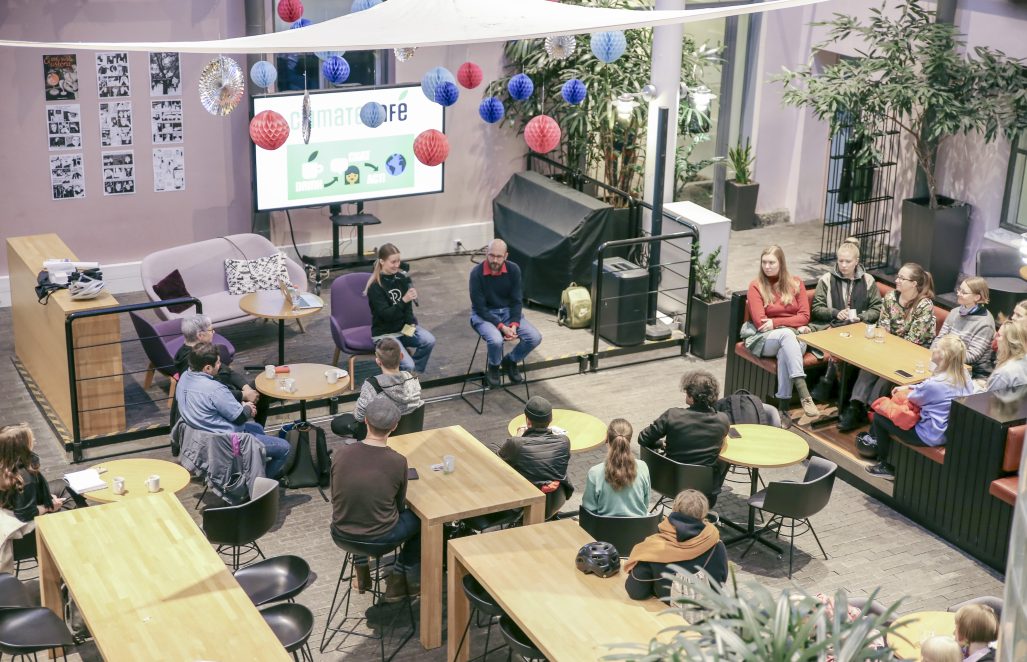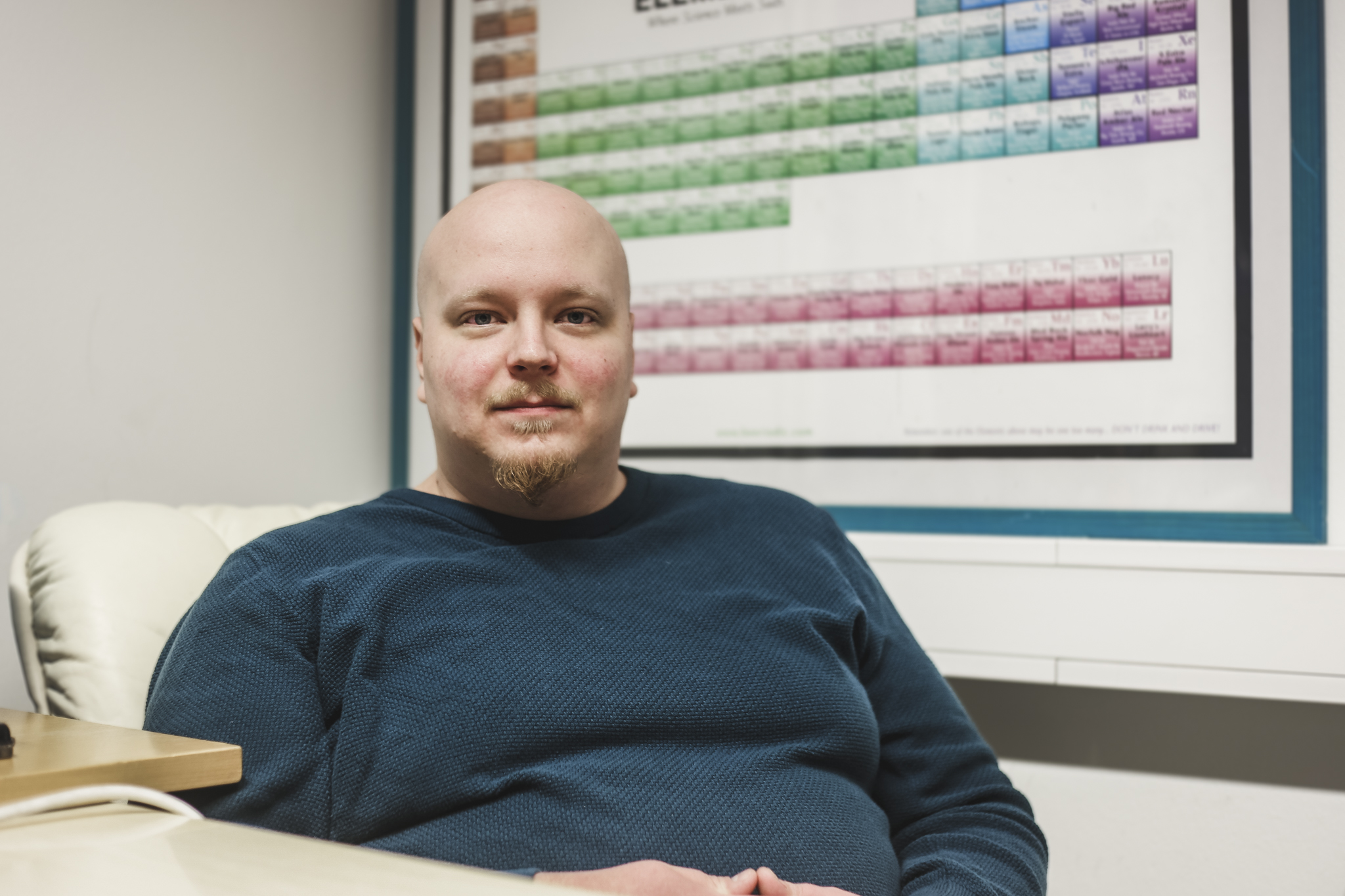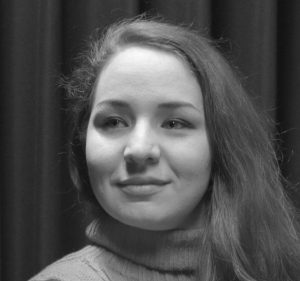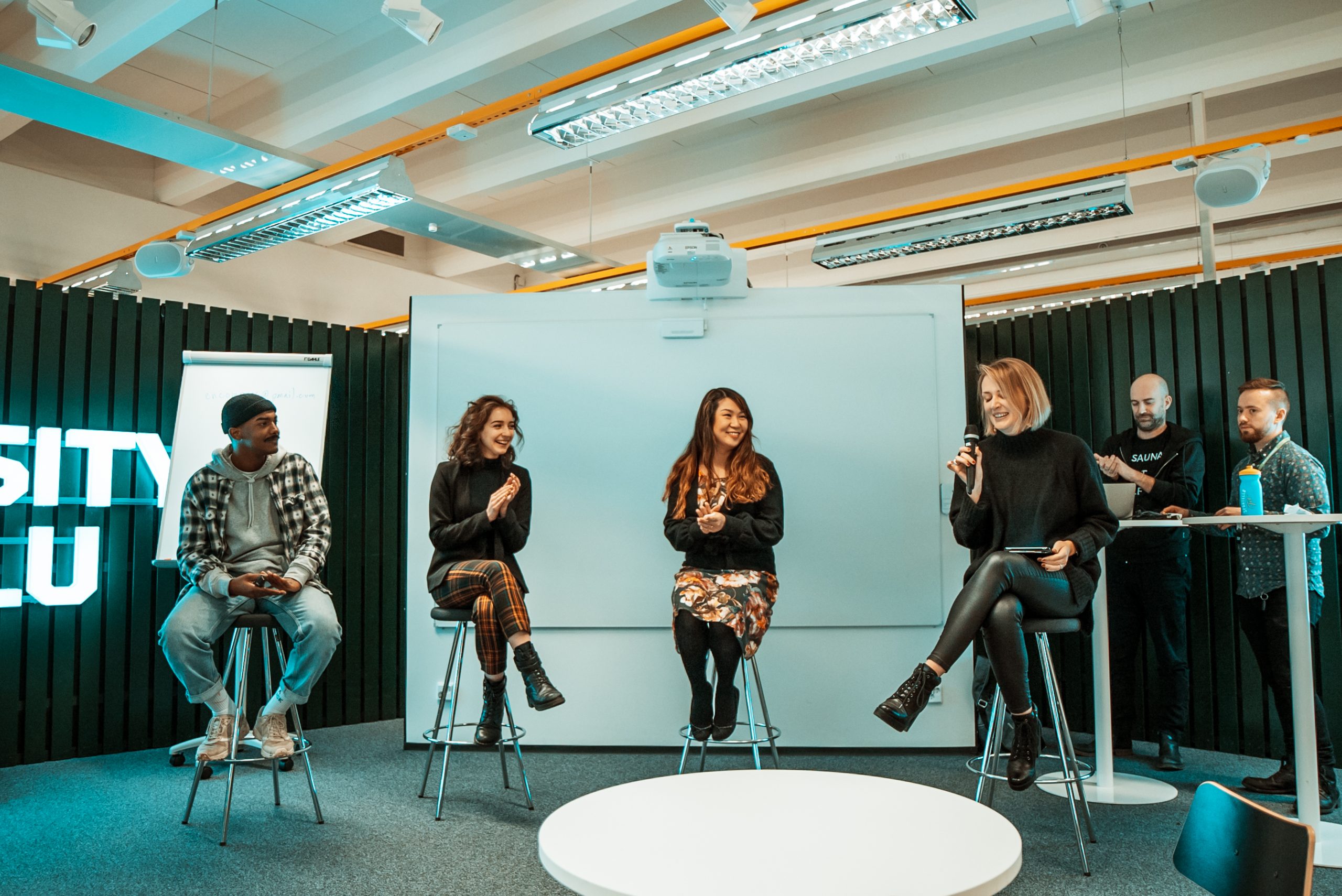Last summer, there were stabbings in Oulu’s shopping center Valkea, targeting individuals with immigrant backgrounds. In one case, the perpetrator was a minor, while in another the perpetrator, Juhani Sebastian Lämsä, had previously been linked to a far-right organization. Lämsä had already been convicted for an attack in 2013.
The Jyväskylä library stabbing incident involved neo-Nazis attempting to disrupt a discussion event organized for the publication of the book ‘Äärioikeisto Suomessa’ (Far-Right in Finland), the event being attended by Left Alliance MP Li Andersson, one of the book’s authors. Lämsä has since denied having a racist motive or intending to kill children, though he was charged with two counts of attempted murder. In the other Valkea incident, according to the police investigation, the attacker had a racist motive when they attacked an individual of Asian descent and stabbed them in the shopping center.
There have been various speculated reasons for the violent acts, such as pointing to the rhetoric and actions of the Finns Party members in the government, who have been accused of fueling anti-immigrant sentiments. When racist speech is tolerated at the highest levels of society, it creates an atmosphere where violence becomes a conceivable solution to resolving tensions between different groups of people.
In an interview with Helsingin Sanomat published on June 23rd, terrorism researcher Leena Malkki noted that discussions and subcultures that tolerate violence have increased in Finland. Such discussions and subcultures often involved the phenomenon of “othering” anyone outside of the group. According to Malkki, violent ideologies have received indirect endorsement from influential figures.
The history and recent past of the Finns Party has been filled with racist and violent online writings and speeches targeting foreigners. MP Mauri Peltokangas has repeatedly referred to immigrants as “goatherds”. The current Minister of Finance, Riikka Purra, has not apologized for the things she wrote in Jussi Halla-Aho’s Scripta blog: after and incident on a train involving young people of immigrant background, Purra wrote in Scripta that “if I were given a gun, there would be bodies even on the commuter train, you see.” These writings were posted in Scripta’s guestbook in September 2008, around the time of the Kauhajoki school shooting.
How does the current political climate affect exchange students and international students studying in Finland? Are they scared for their own safety and have they encountered racism?
Multiple contributing factors
Ray, who is writing his dissertation at the University of Oulu, says that the events at Valkea have impacted both him and his international circle of friends. One of Ray’s friends, who works as a cleaner, was on duty when the blood had to be cleaned from the shopping center’s floors. The incident was traumatic, though some time has passed since June. The last time Rays saw his friend, they seemed to have recovered from the traumatic moment. Ray adds that he no longer goes into the city center alone; a friend always accompanies him. He also no longer visits Valkea.
Ray has been reflecting on the reasons behind the events at Valkea, recognizing multiple contributing factors. He calls for both parental and school responsibility, noting that the perpetrator in one of the stabbings was a 15-year-old minor. Ray does not blame the school for not identifying potential problematic behavior, but is more concerned about what is being taught in schools. Do students receive resources to engage with people from different cultures? Ray also sees the current political climate in Finland as partly responsible for the events. With their rhetoric and actions, the political elite can either narrow or widen the divide between people of different backgrounds in Finland.
Ray was surprised that the stabbings took place in Oulu out of all places. He would have expected incidents like this to happen in southern cities, where there are more immigrants. There are very few foreigners in Oulu, so there are less conflicts between different groups of people.
In an article published by Yle on June 26th, Oulu residents with immigrant backgrounds noted that the amount of racism has been increasing in Oulu for quite some time now, whereas other immigrants note in that same article that they feel safe in Oulu. In the article, researcher Elina Tolonen mentions that a series of sexual offenses that surfaced in Oulu in 2018-2019, leading to the conviction of 22 men with immigrant backgrounds, may have influenced the opinions of individuals in Oulu who were already opposed to foreigners.
Ray mentions that he has not personally experienced racism while living in Finland. This experience may partly be influenced by the environments he spends time while in Oulu, and, on the other hand, by the fact that he is not of African descent, which often increases the risk of facing slurs or violence. Ray’s life has, of course, largely revolved around the university in recent years.
The University of Oulu’s website states that the university strives to promote equality and adhere to its equality and non-discrimination plan in all its activities. The University of Oulu aims for every member of the community to feel welcome and equal within the community. According to the equality and non-discrimination plan, equal treatment and inclusion apply to everyone, regardless of gender, age, ethnic or national origin, citizenship, language, religion, beliefs, opinions, health status, disability, sexual orientation, or any other distinguishing personal factor.
But are these just empty words with nothing real to back them up? Ray feels like he has been welcomed as a member of the university community and has not experienced prejudice. Teaching in English has been largely available, and as dictated by the equality plan, he has received excellent guidance services for both his master’s and doctoral studies.

The equality plan states that the availability of guidance services enables student participation and equality. Ray has struggled with self-confidence, but thanks to the professor supervising his theses, he found the courage to start writing his dissertation. The professor has recommended suitable books and courses and provided Ray with support on his learning journey. At the end of his master’s studies, Ray secured a job as a research assistant, which he says opened the door to pursuing his PhD.
Internationality is a familiar thing in the university
The needs of international students are largely the same as those students born in Finland: guidance with their studies and working life services are services needed by all students. It is crucial that they are available in multiple languages and that the university fosters an atmosphere that’s accepting and understanding of diversity. Ray mentions that initially he had no knowledge of how to write a resume, but the working life services at the university have provided him with useful advice.
Ray can’t think of any suggestion for improvement regarding the support for international students at the University of Oulu. Everything seems to be running smoothly. According to a feedback survey conducted in 2023, International Student Barometer, an astonishing 100% of international students noted that they feel safe on the Oulu campus and are satisfied with the quality of teaching.
Prejudice perceived by first-year students has decreased from what it was in 2022. Seven percent have experienced harassment based on their nationality as international students. Despite the rarity of such harassment, it is, of course, essential to continue working towards completely eliminating discrimination.
The flattering numbers of the feedback survey are surely influenced by the university’s familiarity with internationalization; in its multiculturalism, it differs from the general atmosphere in Oulu, which remains fairly monocultural. The surrounding community does not necessarily share the values that are valued on campus. That’s why violence against foreigners can come as a shock, if one is used to mostly mingling in academic circles. The aforementioned applies largely to all universities and the cities where universities are located. Universities are often the melting pots of various cultures, when the surrounding communities are just learning to respect other cultures.

Perhaps the stabbings in Valkea could have happened anywhere in Finland. The city of Oulu doesn’t necessarily have a racism problem; rather, the issue lies all across Finland, where the current political leadership is allowing the division of people as desirable or undesirable, thus widening the gap between people from different backgrounds.
Racist rhetoric and policy decisions by our political leadership – such as the three-month employment requirement for foreign workers – fall on fertile ground in Finland, which is, according to studies, one of the most racist countries in Europe. For instance, a 2023 study by the European Union Agency for Fundamental Rights placed Finland among the top countries for racism experienced by people of African descent in Europe.
Universities tend to be more liberal in spirit than the surrounding society, thanks to their international atmosphere. At the University of Oulu, people from nearly 100 nationalities study and work. According to its website, the University of Oulu is one of the most internationally diverse institutions in the Arctic Region and Northern Europe, with a strong focus on internationalization.
The website also states that members of the university community have the opportunity to partake in international activities, develop intercultural skills, build global networks and learn about different countries. To be regarded as a respectable international partner, the University of Oulu must, of course, work to ensure that any suspicions of racism do not hinder its goals.
The Finnish job market has been divided
To cite the American philosopher Martha Nussbaum, higher education institutions have been, since the ancient times, served as places for nurturing liberal citizens. According to Nussbaum, universities promote global citizenship, rooted in the discretion that education brings, enabling individuals to see themselves in others and to critically examine their own prejudices.
Equality plans, equality committees and working groups responsible for organizing equality efforts, as well as harassment contact persons within student organizations, all represent the university’s goals for creating an inclusive study and work environment. The University of Oulu’s equality plan states it is the responsibility of every community member to promote equality. Ray’s experiences in Finnish society may change when he decides to apply for jobs as a civil engineer. Currently, Ray is working on his doctoral dissertation with three years of funding granted by the Ministry of Education and Culture.
Quivine Ndomo states in their dissertation, The Working Underclass: Highly educated migrants on the fringes of the Finnish labour market, that even an education received in Finland doesn’t guarantee a job in many cases, since the Finnish job market has been divided into jobs for native Finns and jobs for foreigners. Highly educated immigrants often work in the lowest-paid jobs in the service sector or in fields like construction. Workers are categorized into high- and low-paying jobs based on skin color and ethnicity.
According to background documents from the Ministry of Economic Affairs and Employment’s Unit for Immigration and Integration, dated May 8, 2023, half of the foreign students graduating from Finnish universities are employed in the Finnish labor market within a year of graduation. Internationally, this figure is high, but it has a downside: many do not find work that matches their qualifications and instead, in Ray’s words, end up in “odd jobs”.
The background paper notes that Finnish workplaces have limited capacity to hire immigrants. Employment prospects are also hindered by the lack of social interaction between international students and native Finns, who often remain in separate circles.
Proficiency in the Finnish language is important in the job market, as are connections, which means more work is needed for successful integration. Universities have succeeded in attracting international students through English-language programs, but this comes with a risk: without the need to study Finnish, students may face challenges when seeking employment later.

The three-month rule represents “capitalist exploitation”
The Valkea stabbings have led Ray to adjust his behavior: he avoids the Valkea shopping center and prefers not to walk around the city alone. Yet, when he speaks, other issues are emphasized over the fear of potentially becoming a victim of racist violence in Finland. Ray speaks more about his fears for the future. His funding from the Ministry of Education will end in 2027, and beyond that, everything is uncertain.
It’s possible Ray might not find work that matches his qualifications, facing the same fate as many other immigrants – ending up in odd jobs as a cleaner or food courier. In that case, Ray would most likely just leave the country. He notes that many of his friends are in a similar bind: there are low-paying jobs or unemployment in Finland, but returning home is not an option, as their home countries remain unsafe.
Benjamin, a student at the University of Tampere, has a chilling view of Finland’s right-wing government policies concerning foreigners. The proposed three-month unemployment rule means that workers on employment-based residence permits in Finland must leave the country if they dono not find new employment within three months of their previous job ending.
Benjamin believes that beyond racist motivations, the three-month rule represents capitalist exploitation. Foreigners are pressured to accept any job to avoid being sent out of the country. In this difficult position, they are more likely to agree to wage suppression and poor working conditions, which ultimately benefits capitalist interests.
Benjamin has an employment-based residence permit, and he has applied for Finnish citizenship. Decisions made by the right-wing government are making the lives of foreigners more challenging, and they terrify him so much that after becoming unemployed, he accepted a position at the university – despite the fact that companies pay twice as much in salary. Benjamin, however, couldn’t risk being unemployed for that long, so he chose the university. He has a genuine fear of being forced out of the country and checks the status of his citizenship application daily.
What has alarmed Benjamin is the speed with which decisions undermining the living conditions of foreigners in Finland have been enacted or advanced through legislative bodies. Although he has lived in Finland for six years and thus is not affected by the three- month unemployment rule, his concerns still persist. In an interview with Ilta-Sanomat (August 28th), Minister of Employment Arto Satonen stated that the three-month rule applies to foreigners who have resided in Finland for less than two years on an employment-based residence permit. But who knows what further decision the current government might make?
The social contract has been broken
Benjamin is not only terrified, but he feels like he’s been betrayed. He’s from a country where democracy is on rocky foundations. His fellow citizens used to say that in Europe, democracy works, that they should look up to Europe. When Benjamin started his studies, Finland had a socialist democratic government and young women were in positions of power. It gained international recognition. Benjamin notes that when things were good, he didn’t really pay attention to politics. Now it’s different, when it’s his own life on the line.
After arriving in Finland, Benjamin has lived according to all rules, paid his taxes and has remained employed. He has many years of experience in the Finnish job market. He’s even prepared to perform military service once he gets his citizenship. However, society has changed completely significantly from what it was when Benjamin arrived in Finland.

The stabbings in Valkea do not scare him; like Ray, he is more concerned that the hopes he invested in his future and the social contract he believed he was entering when he came to Finland may no longer hold under the current government, where the Finns Party seems to be setting the tone. When asked why the stabbings involving immigrants happened specifically in Oulu, Benjamin explains that Tampere is more international and left-leaning than Oulu, so similar incidents would be more surprising in Tampere.
Benjamin feels like his law-abiding way of life in Finland currently means nothing. The social contract, he argues, has been broken, as living diligently doesn’t guarantee acceptance for a foreigner in Finland. In the social contract formulated by Jean Jacques Rousseau, citizens submit to the common good in exchange for the state maintaining order. Benjamin has never complained about Finland’s high tax rate. He has remained employed, planned to complete his military service – in short, he’s been a model member of society, ready to fulfill his civic duties without objection. However, he believes that the Finnish government has dissolved the social contract. With even native Finns struggling to find work and facing long periods of unemployment, how can immigrants be expected to secure jobs easily?
Benjamin is more concerned about the wielders of power than about the far-right extremist responsible for the Valkea stabbing. He worries that compliance with societal norms is no longer enough; certain people, based on their skin color, are relegated to capitalist exploitation.
Sociologist Daria Krivonos, in her 2023 article Racial Capitalism and the Production of Difference in Helsinki and Warsaw (Journal of Ethnic and Migration Studies), argues that racializing processes divide people into workers, the unemployed, and “almost-workers” in ways that serve capitalism. Those who deviate from the norm of a white European are classified in these processes as labor that is unfit for white-collar or “normal” jobs. Consequently, these groups are exposed to capitalist exploitation and psychologically exhausting menial jobs, irregular employment and unpaid labor.
Benjamin mentions that six of his friends have considered moving away from Finland. Employment is hard to secure, even if the immigrant has a degree from a Finnish university. Benjamin notes that the reason for his friends’ unemployment is both the bad economic situation in Finland as well as the racist, capitalist wage-labor system. He adds that he might be fortunate, as he has previously managed to find employment without issue. Lately, though, he and his immigrant friends have faced harassment while riding trams in Tampere. He suspects alcohol abuse and unemployment are factors behind the harassment.
Mastering Finnish doesn’t always open the necessary doors for immigrants
Benjamin and Ray don’t really talk about whether they and their friends have experienced direct racism in Finland, but systematic racism – specifically the challenges immigrants face when seeking employment – makes Benjamin visibly upset. He says he could talk about the topic endlessly.
Employment opportunities are tied to language skills. While English-language education is a key advantage for Finland in attracting international future experts, it also creates a challenge: without the need to learn Finnish, there’s less opportunity to practice it.
A 2019 background paper from the Finnish National Agency for Education revealed only 43% of highly educated international students in Finland work in specialist positions. This may partly be due to high proficiency in Finnish often being required for these roles.
Moreover, in her dissertation, Quivine Ndomo argues that Finnish employers often use the Finnish language requirements as a barrier to exclude applicants with immigrant backgrounds from the job market. She points out that mastering Finnish doesn’t always open the necessary doors for immigrants, who often still end up in roles that don’t match their qualifications.
Listening to Ray and Benjamin’s stories, it’s clear that the threat of racist violence doesn’t kill a young person’s basic optimism. Far-right extremism remains a marginal phenomenon in Finland. Ray feels that Finns are generally kind people; he has friends and financial support for his PhD studies. His role as a research assistant was an important milestone on his path to financial independence and reinforced his sense of hope for establishing a position in the Finnish job market.
As dangerous as a death threat
As long as the threat of violence – prompting him to avoid certain places and walking alone – is balanced by numerous positive aspects, it’s possible to live with it, or even forget about it altogether. However, anti-immigrant actions by political leaders and hidden discrimination in the workforce present a real barrier to fulfilling his dreams. Racist and capitalist societal forces together can shatter people’s future plans and make their investments in those plans futile.
For international students, coming to Finland is a significant mental and financial investment, motivated by dreams of a better life. To secure a place to study in Finland, international students must prove they can afford life here. Ray shares that his parents funded his master’s studies. Ending in low-paying jobs after all that doesn’t benefit anyone – not the students or Finland.
Ray is aware of the “brain drain” of highly educated immigrants leaving Finland. For Benjamin, unemployment or poorly paid jobs that don’t match his qualifications are as dangerous as a death threat: it’s like the ones in positions of power, rather than attackers like the ones in the Valkea incidents, are now holding the knife, threatening all immigrants. People are forced to take any job or leave the country. As he puts it, “They are threatening my life.”
The names of the interviewees have been changed due to the sensitiveness of the issue.
Translation by Anna Tiira.

